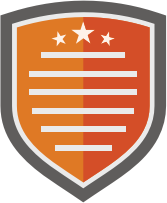Common Sense-https://www.commonsense.org/education/digital-citizenship
This provides many different resources for instructors to look at and share with their students. They have options for students K-12 that can be applied to the classroom. Some of the ideas from different grade levels can also be used as a basis for a lesson for a different group of students.
Edutopia-https://www.edutopia.org/blog/digital-citizenship-need-to-know-vicki-davis
This website provides students with information about the 9 Key Ps of digital citizenship. This includes ideas about making a secure password, keeping private information private, not sharing photographs that shouldn't be shared, asking about or decision if permission is given, and thinking about what they post.
Common Sense-https://www.commonsense.org/education/digital-citizenship/lesson/whos-looking-at-your-digital-footprint
This link is talking about a digital footprint and how students need to be aware that everything they post can be visible by anyone. Even if an account is private or if a post is deleted, someone at some time will be able to see those things that they don't want them to see. This lesson is for juniors and is good for them to talk about as they are applying for college and jobs.
Schoology-https://www.schoology.com/blog/digital-citizenship-elements-lessons-and-importance-0
This website provides nine more ideas about digital citizenship that are a little bit different than those that were on the other website. These include Access, Commerce, Community and Collaboration, Etiquette, Fluency, Health and Wellness, Law, Rights and Responsibilities, and Security and Privacy.
https://www.digitalcitizenship.net/
This website teaches all about digital citizenship and covers the topic in many different ways. This website also provides nine elements of digital citizenship but these are the same as the ones that were provided on the schoology website. They shared a progression chart that talks about the level of digital citizenship that a person is at and how they can progress to improve that even more.
ISTE-https://www.iste.org/learn/digital-citizenship
This last link talks about how Digital Citizenship applies to the field of education and gives additional examples and ideas that were not found on the other pages. Rather than so many negatives, this page gives some DO's for students who don't do as well being told no. These include: using technology to make the community better, engaging respectfully with people who have different beliefs than you, using technology to make your voice heard by public leaders and to shape public policy, and determining the validity of online sources of information
This provides many different resources for instructors to look at and share with their students. They have options for students K-12 that can be applied to the classroom. Some of the ideas from different grade levels can also be used as a basis for a lesson for a different group of students.
Edutopia-https://www.edutopia.org/blog/digital-citizenship-need-to-know-vicki-davis
This website provides students with information about the 9 Key Ps of digital citizenship. This includes ideas about making a secure password, keeping private information private, not sharing photographs that shouldn't be shared, asking about or decision if permission is given, and thinking about what they post.
Common Sense-https://www.commonsense.org/education/digital-citizenship/lesson/whos-looking-at-your-digital-footprint
This link is talking about a digital footprint and how students need to be aware that everything they post can be visible by anyone. Even if an account is private or if a post is deleted, someone at some time will be able to see those things that they don't want them to see. This lesson is for juniors and is good for them to talk about as they are applying for college and jobs.
Schoology-https://www.schoology.com/blog/digital-citizenship-elements-lessons-and-importance-0
This website provides nine more ideas about digital citizenship that are a little bit different than those that were on the other website. These include Access, Commerce, Community and Collaboration, Etiquette, Fluency, Health and Wellness, Law, Rights and Responsibilities, and Security and Privacy.
https://www.digitalcitizenship.net/
This website teaches all about digital citizenship and covers the topic in many different ways. This website also provides nine elements of digital citizenship but these are the same as the ones that were provided on the schoology website. They shared a progression chart that talks about the level of digital citizenship that a person is at and how they can progress to improve that even more.
ISTE-https://www.iste.org/learn/digital-citizenship
This last link talks about how Digital Citizenship applies to the field of education and gives additional examples and ideas that were not found on the other pages. Rather than so many negatives, this page gives some DO's for students who don't do as well being told no. These include: using technology to make the community better, engaging respectfully with people who have different beliefs than you, using technology to make your voice heard by public leaders and to shape public policy, and determining the validity of online sources of information



